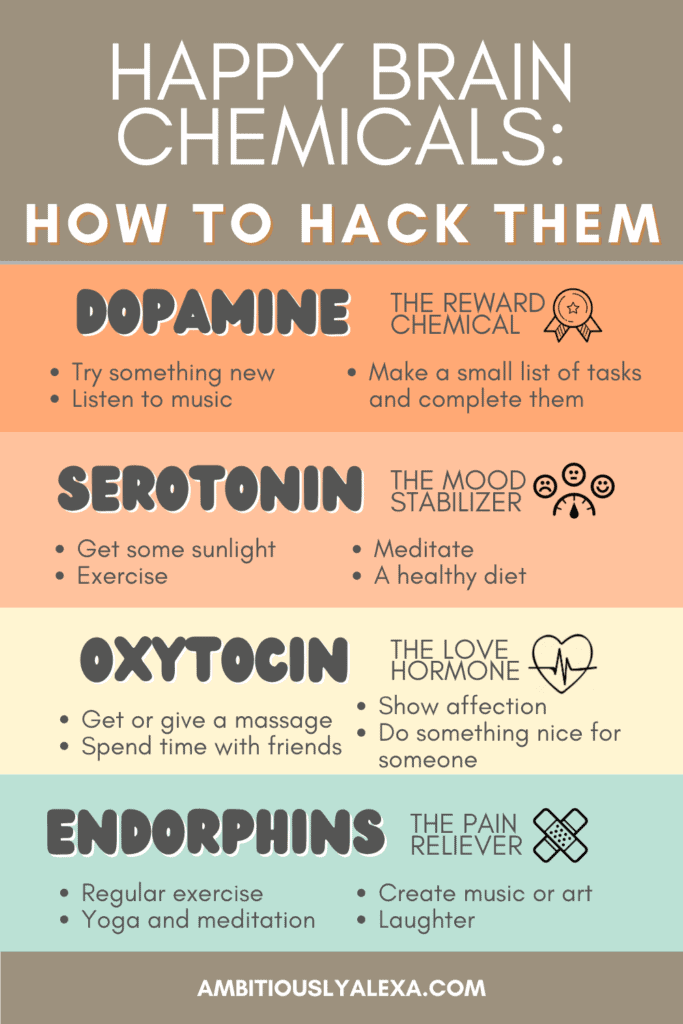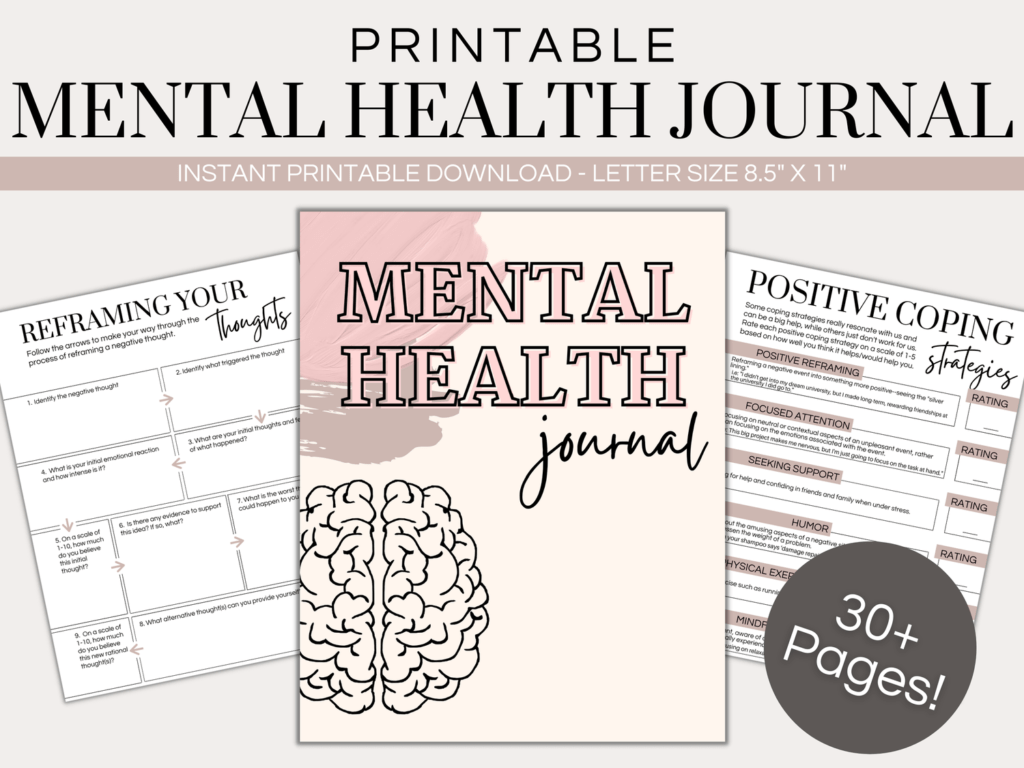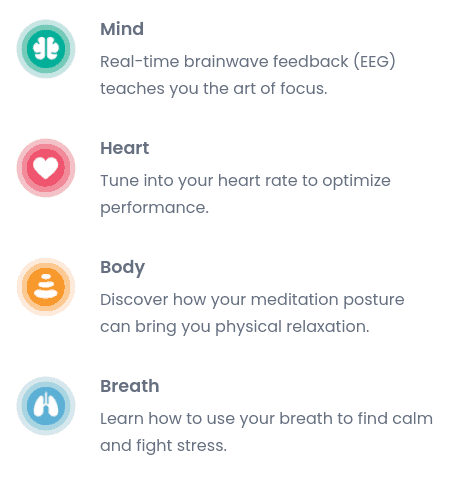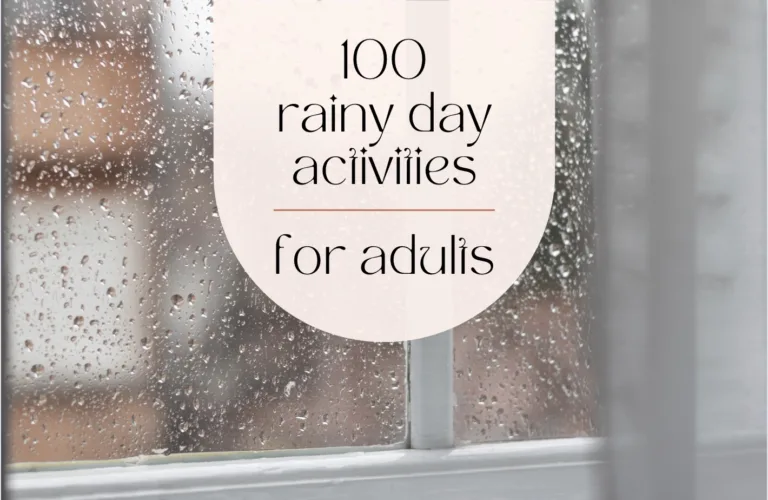Happiness Chemicals and How to Hack Them For Better Mental Health
This post contains affiliate links and I may receive a small commission (at no extra cost to you) if you sign up or purchase products or services mentioned. Read the full disclosure here.
Last Updated on November 30, 2023
Curious about the happiness chemicals and how to hack them? Here’s what each happiness chemical does and how to work them to your advantage!
If you struggle with depression, or if you’re just feeling down lately, it’s helpful to get familiar with the happiness chemicals and how to “hack” them (encourage them) to improve your mood.
The following happiness chemicals play a role in your mood and mental health, and therefore need to be targeted:
- Dopamine – responsible for our sense of reward
- Serotonin – a major assisting factor in regulating mood
- Oxytocin – activated through affection and “feel-good” activities
- Endorphins – aids in pain relief
You’ll be surprised to hear that each of these happiness chemicals can be hacked with fairly accessible small lifestyle changes. Things like exercise, diet, meditation, and spending time with loved ones are all activities that contribute to the happiness chemicals in useful ways!
Keep in mind as we move forward in the post, depression will not be “cured” with any quick fix. These are simply steps you can take to lessen the impact of depressive symptoms. Therapy is always recommended when struggling with chronic mental health conditions (I even use online therapy myself!). But for the occasional drop in mood, these hacks are great in a pinch!
This post is all about the happiness chemicals and how to hack them
What are the happiness chemicals?
Happy brain chemicals are hormones that act as neurotransmitters, sending signals throughout the brain to perform different functions.
In the case of “happy” brain chemicals, I am referring to the hormones responsible for regulating your mood.
These include:
- Dopamine – the “reward” chemical, associated with pleasurable activities like completing a task or eating food
- Serotonin – the “mood stabilizer,” responsible for our feelings of wellbeing
- Oxytocin – the “love hormone,” promoting trust, empathy, and bonding in relationships
- Endorphins – the “pain reliever,” produced in response to stress or discomfort, or as a result of activities that produce reward
Pin these happiness chemicals and how to hack them for later!

We can take a closer look at each of these happy brain chemicals and discuss how to hack them.
How do you chemically hack your happiness?
The process for hacking your happiness is simpler than you think. No crazy brain procedures necessary! All it takes is a bit of knowledge of basic neuropsychology, and I’ll explain what that means!
Your actions have a greater role in your emotions and mood than you may realize.
Perform a negative, unhealthy action, and a chemical response is triggered in the brain that elicits a negative mood.
Perform a positive, healthy action, and a chemical response is triggered in the brain that elicits a positive mood.
So what does it all boil down to? Getting in the habit of choosing positive, healthy actions that make you feel good!
If we stay in a downward slump where we’re not practicing self care, not choosing activities that are good for us, and aren’t surrounding ourselves with positive people in positive environments…well it’s no surprise that our mood is consistently poor!
Of course, it’s impossible to be happy all the time, regardless of all the great actions we pursue. And I get that. But introducing more good actions and subtracting the bad ones will go a long way in determining our baseline mood state. After all, research shows that people who create a general sense of wellbeing for themselves have better relationships and live longer, healthier lives. Habits are everything!
Here’s a deeper look at each of the happiness chemicals and how to hack them.
Dopamine: The Reward Chemical
Dopamine plays a role in our pleasure. In turn, this plays a role in our ability to think and plan in a way that strives for reward. It is involved in our learning, motivation, sleep, mood, attention, and more.
What can happen with a dopamine imbalance?
Too much dopamine: may be responsible for schizophrenia. Having too much dopamine in different areas of the brain causes hallucinations and delusions seen in schizophrenic patients.
Too little dopamine: may be responsible for ADHD, according to some research. This lack of enough dopamine can make for a lack of focus, which is why ADHD causes attention difficulties.
Additionally, a lack of enough dopamine can cause depressive symptoms. This made so much sense for me personally, as psychiatrists tend to prescribe medications that target serotonin first, and not dopamine.
It wasn’t until I got prescribed a medication that targeted dopamine that my depressive symptoms finally improved! Sometimes, your serotonin levels may be just fine, but another chemical like dopamine may be out of balance and causing depressive symptoms.
This is especially true if you find yourself experiencing the more motivation-related symptoms, like feeling hopeless, loss of interest, and difficulty concentrating. These were exactly how my depression affected me.
Happiness Chemical Hacks for Dopamine
- Try something new: Switching up your daily routine or taking on a new hobby can help create a “new” reward motivation for yourself. This will help to get you out of monotony.
- Listen to enjoyable music
- Make a small (manageable) list of tasks and complete them: each completed task will register as a “reward”
Pssst….want to get better at managing your mental health? My printable mental health journal is a GAME CHANGER for that!
As someone who’s always looking for ways to manage stress, I knew just how important it was to create a resource that will actually help you understand (and improve) your stress levels and coping habits.
I created the printable mental health journal to help you make sense of your emotions, reframe your negative thoughts, and overcome unhelpful behaviors that hold you back from living your best life!
Go check it out and add the printable mental health journal to your self care toolbox!
Serotonin: The Mood Stabilizer
Serotonin is one chemical that is related to positive mood. It impacts many things, from your emotions to your motor skills.
What can happen with a serotonin imbalance?
Too much serotonin: This can cause “serotonin syndrome.” This is uncommon and usually only caused by the use of too much medication or the addition of a new medication that increases serotonin. Serotonin syndrome causes confusion, rapid heart rate, and agitation.
Too little serotonin: Much more common–resulting in anxiety and depression. You may feel down, more anxious, less calm, less focused, and less emotionally stable. Serotonin is what psychiatrists attempt to address first when treating anxiety and depression.
Happiness Chemical Hacks for Serotonin
- Exposure to bright light: can explain why seasonal depression typically clears up in the summer months
- Exercise: has been known to boost mood where serotonin is concerned
- Meditation: helps relieve stress and improve your outlook on life
- A healthy diet: foods like eggs, cheese, and nuts.
On that note, I want to take a moment to dive into the scientific side of meditation.
As serotonin deficiency is a very common cause of depression and anxiety, and knowing that meditation can help alleviate these symptoms, it’s important to talk about.
Why is Meditation Important for Anxiety and Depression?
Well, in addition to boosting serotonin levels, those who meditate show a quicker recovery in their emotional response after being exposed to negative events.
This means that meditation will help you manage your negative emotions. Regular meditation promotes resilience to negative events in your life.
But if you don’t regularly practice meditation, or if you don’t know how to meditate, you might not know where to start.
That’s where Muse Meditation Headbands come in. This headband REALLY steps up the meditation game.
Muse headbands are a multi-sensor meditation device, providing feedback in real-time on your brain activity, heart rate, and breathing. This builds a consistent meditation practice that’s tailored just for you!
Muse completely guides you through your meditation with points, goals, challenges, and bonuses along the way. With each new session, it learns more about you via your mind and body to adjust your goals in a way that fits your needs. How cool is that?!
You’ll definitely want to check these out if you’re looking to include meditation into your routine. Go take a deeper look at Muse Meditation Headbands here!
Onto the last two happy brain chemicals!
Oxytocin: The Love Hormone
Oxytocin is involved in empathy, trust, and relationship-building. It’s called the “love hormone” because oxytocin is released during activities like hugging, breastfeeding, and orgasm.
What can happen with an oxytocin imbalance?
Too much oxytocin: I know you might be thinking “what bad can come from too much love?” but, actually, too much oxytocin can result in oversensitivity to the emotions of others.
For example, when given measured doses of oxytocin, participants in a study reported greater emotional intensity when looking at a series of facial expressions.
Too little oxytocin: This can result in low empathy, and can also be a factor among patients with autism.
Happiness Chemical Hacks for Oxytocin
- Get or give a massage: this physical contact will boost oxytocin
- Tell someone that you love and care about them
- Spend time with friends: helps build up your emotional well-being and increase bonding
- Show affection: both romantic and platonic affection can trigger oxytocin production
- Do something nice for someone: seeing your efforts to make someone else happy can make you feel happy too!
Nudge nudge–hey friend, are you struggling with your mental health? Or just want to get better at tackling life’s daily stressors? Talking to an online therapist can really help you out. It’s truly helped me get a better grasp on my anxiety! I always recommend Online Therapy because it’s a comprehensive, effective online therapy toolkit based on CBT (cognitive behavioral therapy–the leading standard in psychotherapy) at an affordable monthly cost.
Endorphins: The Pain Reliever
Endorphins are responsible for reducing pain and boosting pleasure. They are released in response to pain and stress, but also during pleasurable activities like eating, sex, or exercise.
What can happen with an endorphin imbalance?
Too many endorphins: I’m not finding any studies done on this, so “too many” (natural) endorphins might not be a problem!
Too little endorphins: contributes to depression. Endorphins, like dopamine, play a role in our reward system, so depression can certainly result from an unstimulated reward system.
Happiness Chemical Hacks for Endorphins
- Regular exercise (think “runner’s high”!) although, this doesn’t have to be running.
- Yoga and, again, meditation!
- Create music or art
- Laughing
I hope this makes the science behind these “happy brain chemicals” a little clearer!
Knowing each of these happiness chemicals and how to hack them will help you identify what you can do to boost your mood and improve your overall mental well-being. If you want to take charge of your mental health, you should grab my printable mental health journal to work through the tough stuff!
Take care.
Wish you had a way to manage your anxiety symptoms? Grab my (free!) printable anxiety tracker below!
This post was all about happiness chemicals and how to hack them.
IF YOU LIKED THIS POST, YOU’LL LOVE THESE TOO!
50 Therapeutic Journal Prompts for Emotional Healing
This Printable Mental Health Journal Will Change Your Coping Habits












Great explanation of the different happiness chemicals. I love the ideas and infographic!
What a great post, Alexa! There are so many people out there dealing with anxiety and depression who need help in finding the right medication and treatment to give them hope. My older son has been fighting addiction most of his life and went through depression, anxiety, and paranoia until he had insurance and was taken to a facility where they evaluated him and put him on medication, and changed it until they thought he was at the right level. This took several months and it changed his life! He is on the road to recovery with no relapses, while on the right meds.
I like how you explained the “happy brain chemicals” and love the Muse Meditation Headbands. Thank you for sharing!